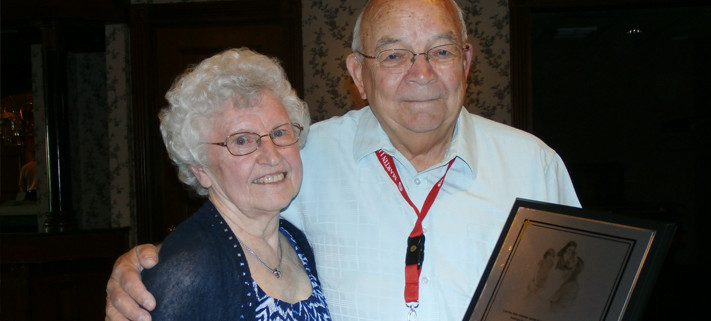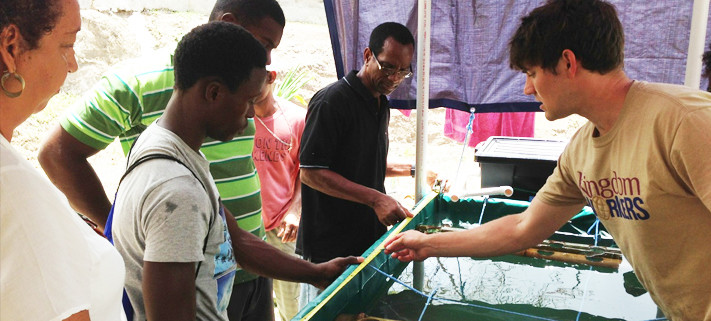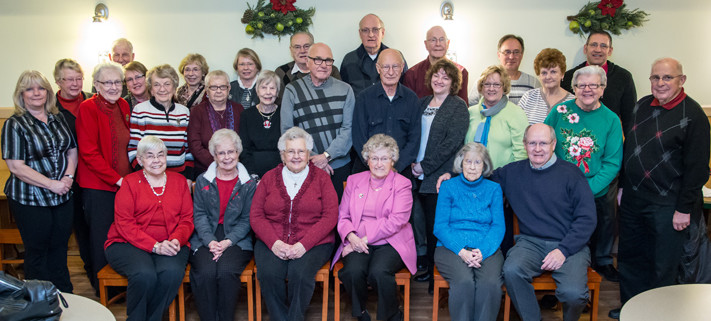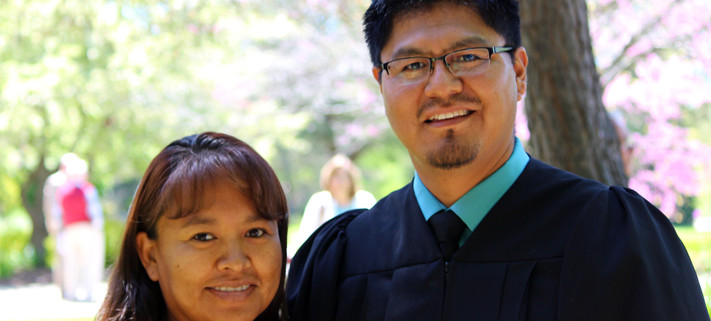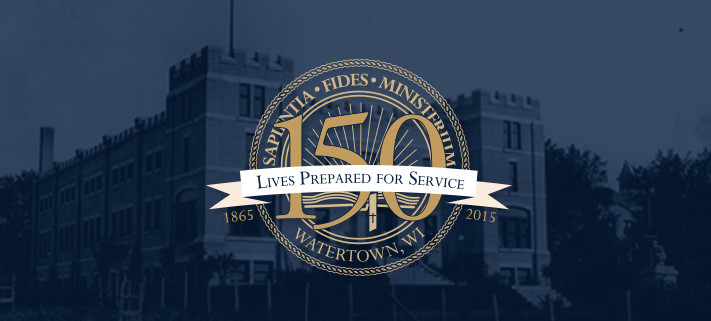Touching heaven: When God seems far away
Does God seem too busy to answer your prayers? Do the answers you receive seem as if he never even listened?
Stephen M. Luchterhand
We sometimes think that the almighty Creator and Sustainer of all is quite busy. He must have bigger priorities to tend to than the infinitesimally small and insignificant chirpings, tweetings, whinings, postings, and pleadings by the likes of us. God just doesn’t always message back as quickly as we think he should.
Communication, then, would seem to be better with people we can actually see and hear. In our digital age, we communicate with more people in more ways more often and more clearly than ever before. Because we are so connected, miscommunication and misunderstanding are at a minimum. Right?
We wish! It’s not even close. When we’re not communicating well with one another, it’s ugly. The question isn’t so much “Can you hear me now?” Raised, angry voices can be heard. The question is “Are you listening to me now?”
If we have trouble communicating with people we can see and know and love, we’re going to have trouble communicating with God. Why? And how do we keep the lines of communication open so we can touch heaven with our prayers?
PRAYER BLOCKERS
What hinders communication with God? Are there so-called prayer blockers that keep us from praying and prevent our prayers from reaching God’s ears?
For starters, we’re busy. We allow other things to get in the way of taking the time to pray. We may spend more time thinking about prayer than actually doing it.
Another impediment to prayer? We’re selfish. Review your prayers and ask, “Am I telling God what to do or am I asking him? Do my prayers follow the example of the prayer Jesus taught us to pray?” Not until the Fourth Petition of the Lord’s Prayer—halfway through—do we pray, “Give us today our daily bread.” Do our prayers concentrate first and only on our personal needs? Are we forgetting other important concerns like our church, our missions, our young people? The list goes on.
Another prayer blocker is doubt, a lack of confidence. “But when you ask, you must believe and not doubt, because the one who doubts is like a wave of the sea, blown and tossed by the wind. That person should not expect to receive anything from the Lord (James 1:6,7). Our prayers should be spoken in confidence, knowing that our heavenly Father wants his children to bring their requests to him. He promises to listen and respond. Trust his invitation and promise.
But of all the things that sabotage communication with God, the number one prayer blocker is sin. Isaiah emphasizes this: “Your iniquities have separated you from your God; your sins have hidden his face from you, so that he will not hear” (Isaiah 59:2). Sin separates us from God. We’re not referring to a few slipups a day, but sins of thought, word, and deed as countless as grains of sand on the beach, every one of which deeply offends God.
Isaiah spends most of chapter 59 highlighting our natural spiritual condition and how we act on that sinful nature. Later, he writes, “For our offenses are many in your sight, and our sins testify against us. Our offenses are ever with us, and we acknowledge our iniquities” (59:12). Three different words for sin appear in this one verse, a testament to the stunning ability and creativity of humanity to explore the depths of depravity. The meaning of the Old Testament Hebrew word for offense is a rebellion against the love and faithfulness of God and his standards. Iniquity is to follow a crooked path or to deviate from God’s standards. Sin means to miss the standard set by God.
When your home wireless Internet connection goes down, it seems as though the world has come to an end. This is only a slight exaggeration. Smartphones revert to satellite links and chew up data. Laptops and iPads become less useful, and Netflix streaming comes to a halt. No effort is spared to remedy a broken wireless connection. There is no rest until the connection is restored.
God spared no effort to solve our spiritual dilemma. He planted a tree on a skull-shaped hill: a dead tree, two pieces of wood lashed together in the form of a cross. He placed his Son there and on his shoulders put our rebellion against him, our crooked actions, our misses and failures, and our sins—my sins, your sins, the sins of the whole world. Before we ever asked him to, before we ever said we were sorry, before we were even born, God carried out his plan of love. “God demonstrates his own love for us in this: While we were still sinners, Christ died for us” (Romans 5:8). A risen Christ assures us of forgiveness and life with him forever. God has removed the barrier to our communication with him. We have access; we pray.
RESPONSES TO UNANSWERED PRAYERS
And yet we have questions. In the trenches of daily life, in the midst of the ongoing battles we face, how can we reconcile a God who is able to do anything and everything with a God who often seems far away? God, it seems, remains silent or at least takes considerable time to answer prayer.
When prayers seemingly go unanswered, rather than complain to God or look elsewhere for help, we will do what God’s people have done since the beginning of time: we will seek God’s clear counsel in his never changing, life-giving Word.
In time of trial, rather than question God or blame him for things I don’t understand, I will remember that he sees the big picture. He holds me in the palm of his hand and close to his heart. I will praise him for promising that he won’t give me more than I can handle and for promising that he does answer my prayers in his own time and in his own way—always for my best. Sometimes God will leave the problem in my life, and his answer is simply, “My grace is sufficient for you, for my power is made perfect in weakness” (2 Corinthians 12:9).
When someone dies despite prayers for healing or when we ourselves face death despite fervent prayer, we will not second-guess our Savior. Remembering that our times are in his hands, we will praise him with the words of Job: “Naked I came from my mother’s womb, and naked I will depart. The LORD gave and the LORD has taken away; may the name of the LORD be praised” (Job 1:21).
Whenever we search in vain for answers, we will remember the wondrous ways of our God: “ ‘For my thoughts are not your thoughts, neither are your ways my ways,’ declares the LORD. ‘As the heavens are higher than the earth, so are my ways higher than your ways and my thoughts than your thoughts’ ” (Isaiah 55:8,9).
In the end, there is only one way to think of God’s response to our prayers: “I prayed, and I got exactly what I needed.”
Stephen Luchterhand is pastor at Deer Valley, Phoenix, Arizona.
This is the sixth article in a seven-part series on prayer.
SUBMIT YOUR STORY
Do you have a manuscript, idea, or story from your own life you’d like to share for use in Forward in Christ or on wels.net? Use our online form to share it to our editorial office for consideration.
SUBSCRIBE TO FORWARD IN CHRIST
Get inspirational stories, spiritual help, and synod news from Forward in Christ every month. Print and digital subscriptions are available from Northwestern Publishing House.
Author: Stephen M. Luchterhand
Volume 102, Number 09
Issue: September 2015
Copyrighted by WELS Forward in Christ © 2021
Forward in Christ grants permission for any original article (not a reprint) to be printed for use in a WELS church, school, or organization, provided that it is distributed free and indicate Forward in Christ as the source. Images may not be reproduced except in the context of its article. Contact us


